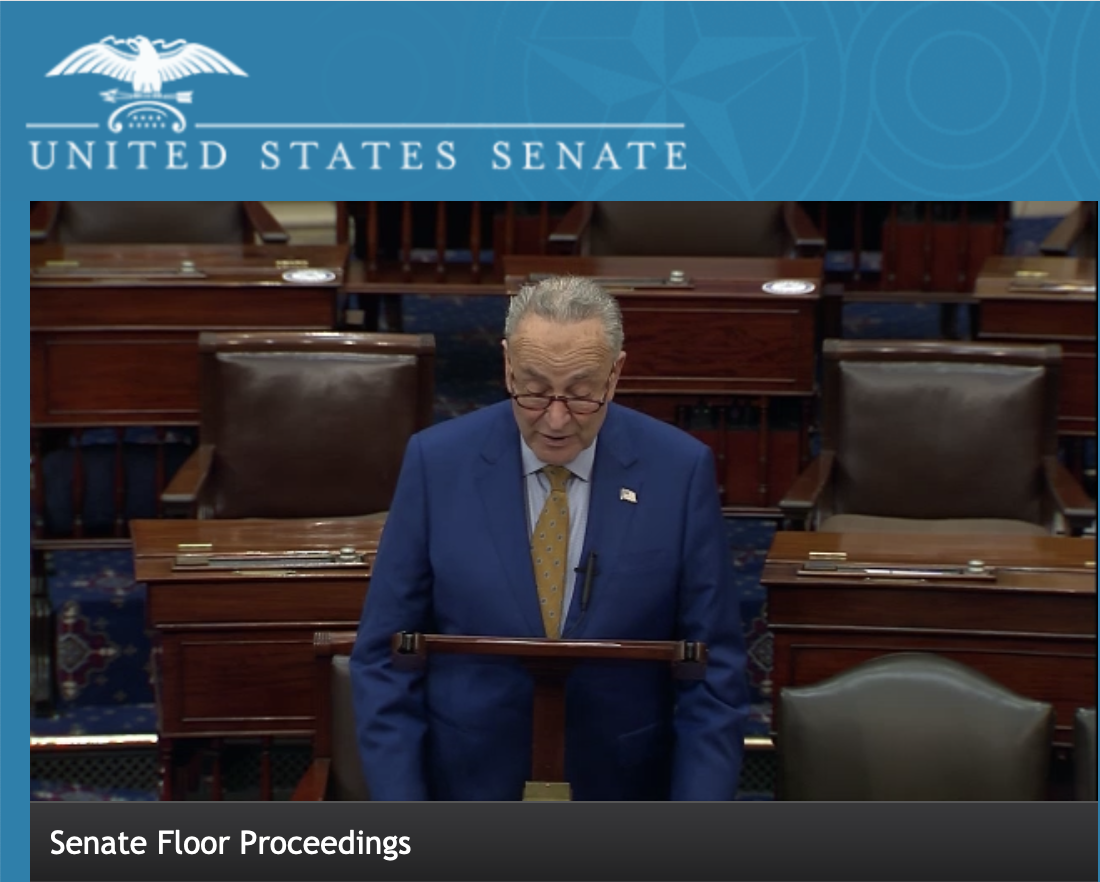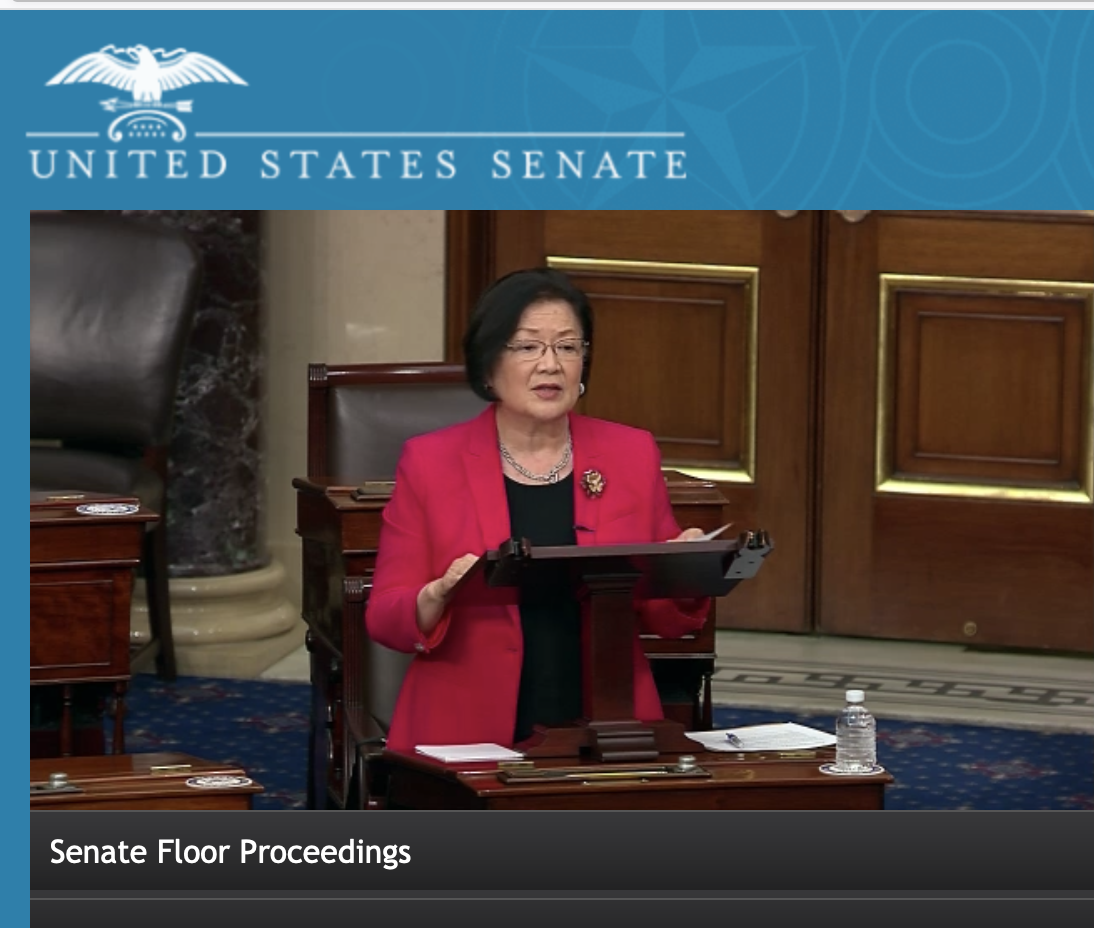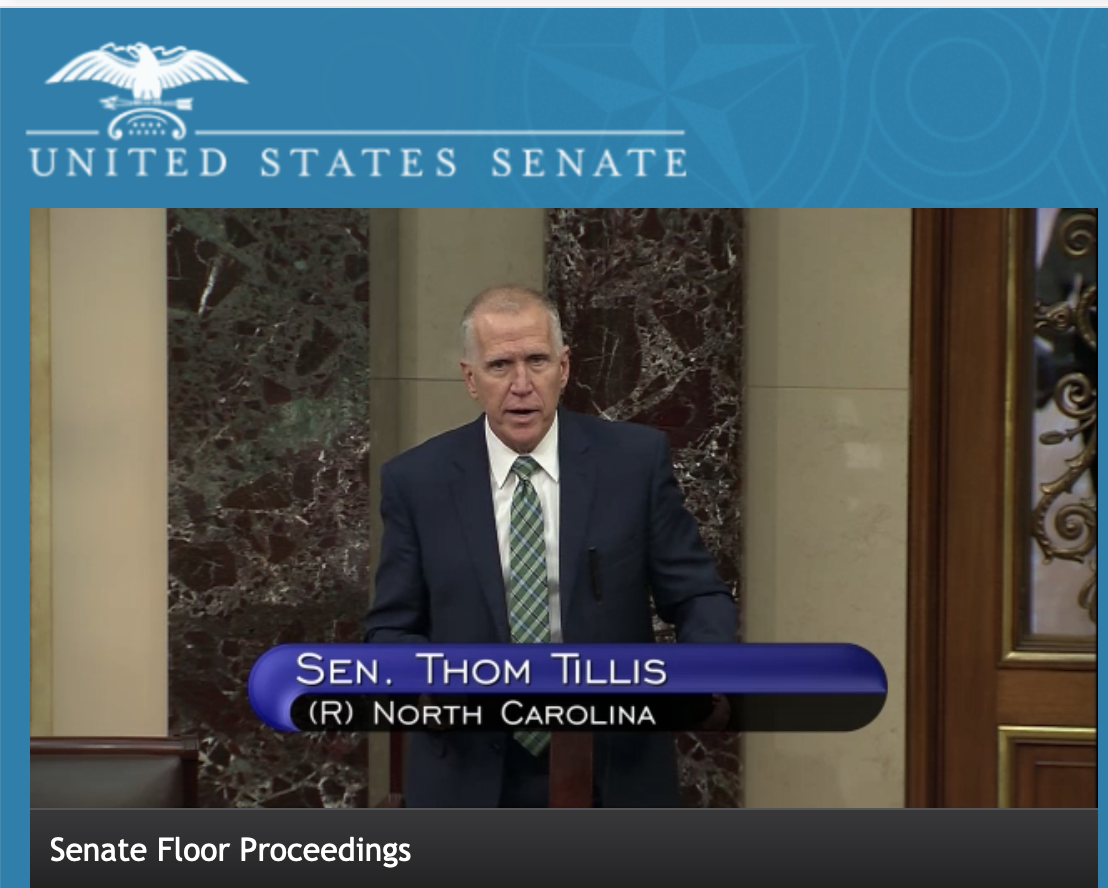
Senator Chuck Schumer
Senate Majority Leader Chuck Schumer (D-NY) this week filed the United States Innovation and Competition Act of 2021 as a substitute amendment to the Endless Frontier Act, thereby bringing that bill together with a number of other bipartisan bills, including the Inventor Diversity for Economic Advancement (IDEA) Act, which passed out of the Senate Judiciary Committee last month.
The IDEA Act is aimed at improving the U.S. Patent and Trademark Office’s (USPTO) demographic data-gathering efforts to better understand the rates at which women, people of color, and lower-income individuals are inventing and patenting. The Innovation and Competition act is primarily aimed at out-competing China in critical technology sectors.

Senator Mazie Hirono
The vote on the IDEA Act, S.Amdt. 1517, introduced by Senator Thom Tillis (R-NC), was 71-27 in favor. Speaking on the Senate Floor about the bill yesterday, Senator Mazie Hirono (D-HI) said that closing the patent gap for women and minorities could “turbocharge the U.S. economy.” While the IDEA Act would not solve any of the problems with diversity in the patent system, Hirono explained, “it’s a critical first step. We need to have the data on which to make decisions.”
Speaking after Hirono, Tillis added: “We’ve heard endless reports on how China is churning out patents. This [bill] allows people to submit information we can use to create more IP, more patents and to get more people engaged in the patent and IP system.”
The IDEA Act was first presented in July 2019, following Representative Steve Chabot’s (R-OH) introduction of the Study of Underrepresented Classes Chasing Engineering and Science (SUCCESS) Act in 2018. That bill asked the USPTO, “in consultation with the Administrator of the Small Business Administration, to study and provide recommendations to promote the participation of women, minorities, and veterans in entrepreneurship activities and the patent system.” A key finding of that study was that there simply isn’t enough publicly available data to guide and support legislation that will foster inclusive innovation. This inspired the IDEA Act.
 The bill would direct the USPTO “to collect demographic data – including gender, race, military or veteran status, and income level, among others – from patent applicants on a voluntary basis.” The latest version of the bill would also require the USPTO “to issue reports on the data collected and make the data available to the public, thereby allowing outside researchers to conduct their own analyses and offer insights into the various patent gaps in our society.”
The bill would direct the USPTO “to collect demographic data – including gender, race, military or veteran status, and income level, among others – from patent applicants on a voluntary basis.” The latest version of the bill would also require the USPTO “to issue reports on the data collected and make the data available to the public, thereby allowing outside researchers to conduct their own analyses and offer insights into the various patent gaps in our society.”
In the Senate Judiciary Committee hearing last month, there was some controversy over whether an amendment was needed to ensure the voluntary nature of the collection process. However, the bill was passed without such an amendment.
Invent Together’s Executive Director Holly Fechner applauded yesterday’s vote on the amendment and said: “Diversifying who invents is a crucial step toward ensuring that we use the full measure of our talent to compete globally.”
The organization said that including the bill in the Innovation and Competition Act increases the likelihood that the legislation will become law.

![[IPWatchdog Logo]](https://ipwatchdog.com/wp-content/themes/IPWatchdog%20-%202023/assets/images/temp/logo-small@2x.png)

![[Advertisement]](https://ipwatchdog.com/wp-content/uploads/2024/04/Patent-Litigation-Masters-2024-sidebar-early-bird-ends-Apr-21-last-chance-700x500-1.jpg)

![[Advertisement]](https://ipwatchdog.com/wp-content/uploads/2021/12/WEBINAR-336-x-280-px.png)
![[Advertisement]](https://ipwatchdog.com/wp-content/uploads/2021/12/2021-Patent-Practice-on-Demand-recorded-Feb-2021-336-x-280.jpg)
![[Advertisement]](https://ipwatchdog.com/wp-content/uploads/2021/12/Ad-4-The-Invent-Patent-System™.png)







Join the Discussion
6 comments so far.
Pro Say
May 21, 2021 12:35 pmWant to get folks on board for, oh, I don’t know; most anything?
Just come up with a “gap.”
’cause, well, gaps just wanna be filled.
PTO-indentured
May 21, 2021 10:45 amclosing the patent gap for women and minorities could “turbocharge the U.S. economy” making them and their post-grant PTO issued patents equally defenseless-then-free — in the same prejudiced manner we’ve setup to kill U.S. patents of individual inventors and innovators under AIA — for over a decade!
If you get a U.S. patent be sure to note, you’ll need $3M to $4M now — to enforce it — for each case of infringement. Oh … and it will take / eat up years just to see if you’ll even make a dime. Checkmate.
Them that’s got shall get, them that’s not shall lose. No matter your gender or ethnicity — individual’s get the PTO blues.
PTO-indentured
May 21, 2021 10:40 amclosing the patent gap for women and minorities could “turbocharge the U.S. economy” making them and their post-grant PTO issued patents equally defenseless-then-free — in the same prejudiced manner setup to kill U.S. patents of individual inventors and innovators under AIA — for over a decade!
Equality for all: if you get a U.S. patent be sure to note, you’ll need $3M to $4M now — to enforce it — for each case of infringement. Oh … and it will take / eat up years just to see if you’ll even get a dime. Checkmate.
Them that’s got shall get, them that’s not shall lose. No matter your gender or ethnicity — the PTO blues.
Model 101
May 21, 2021 07:08 amGreat but…patents aren’t worth the paper they’re printed on.. Reform 101.
Anon
May 21, 2021 06:23 amCollecting personal data has zero to do with getting more people to file patents.
Less “woke” signaling and more substantive patent reform please.
George
May 20, 2021 07:29 pmFinally!!!
My ‘guess’ . . . people without money don’t file patents and 99% of Americans file very few patents!